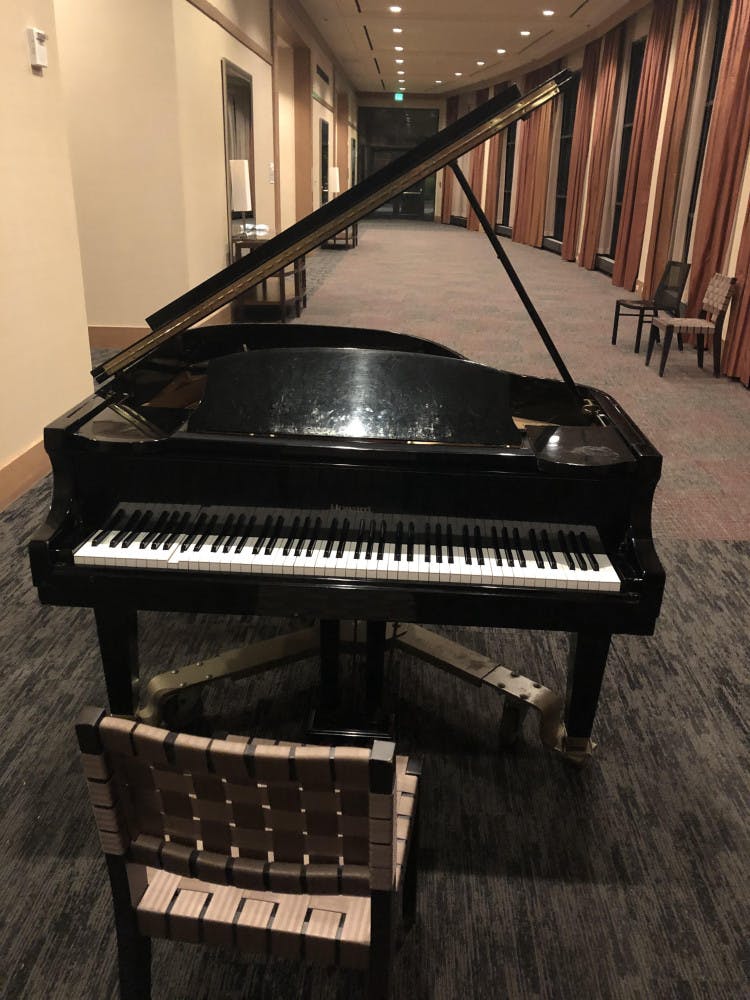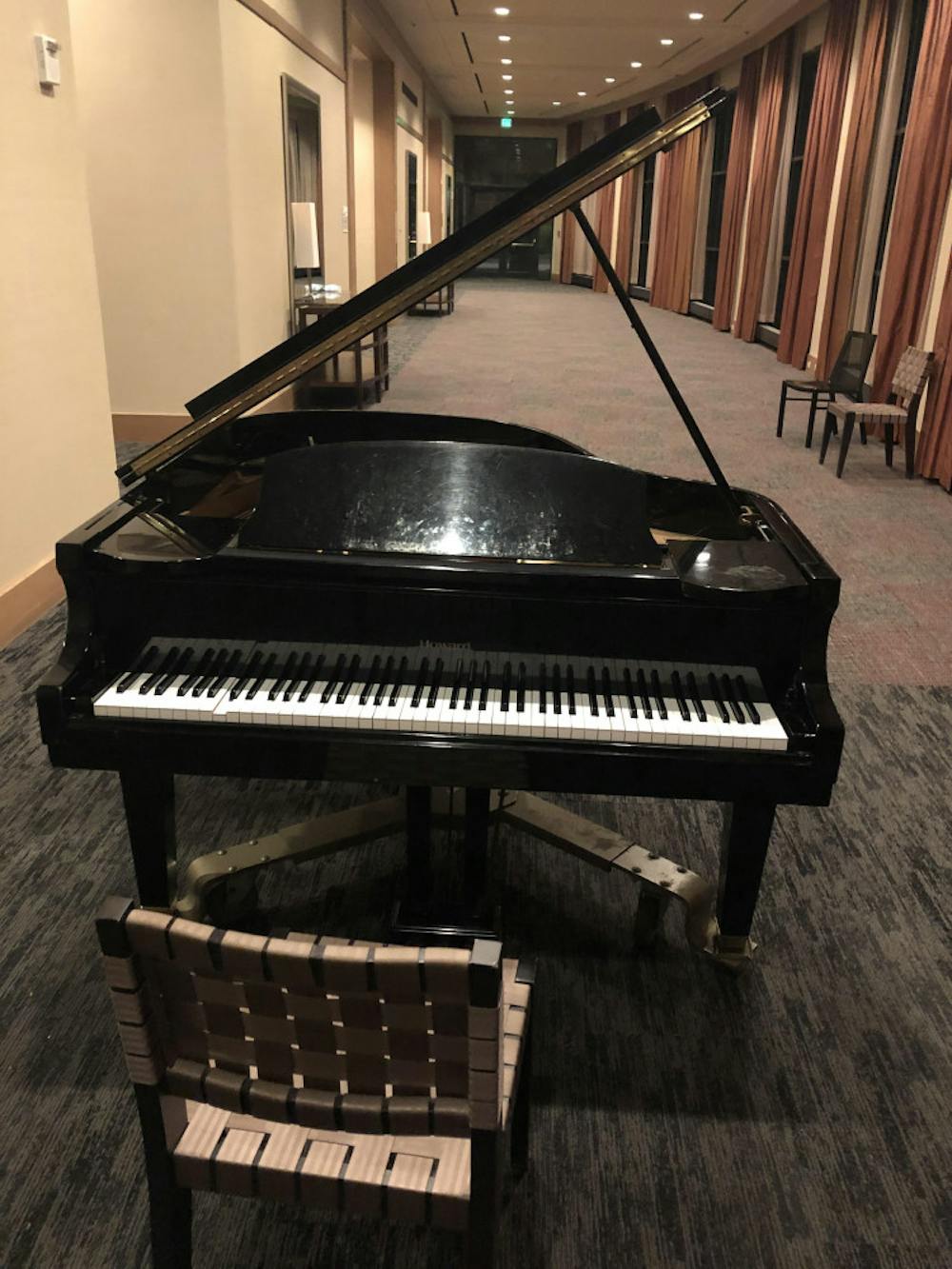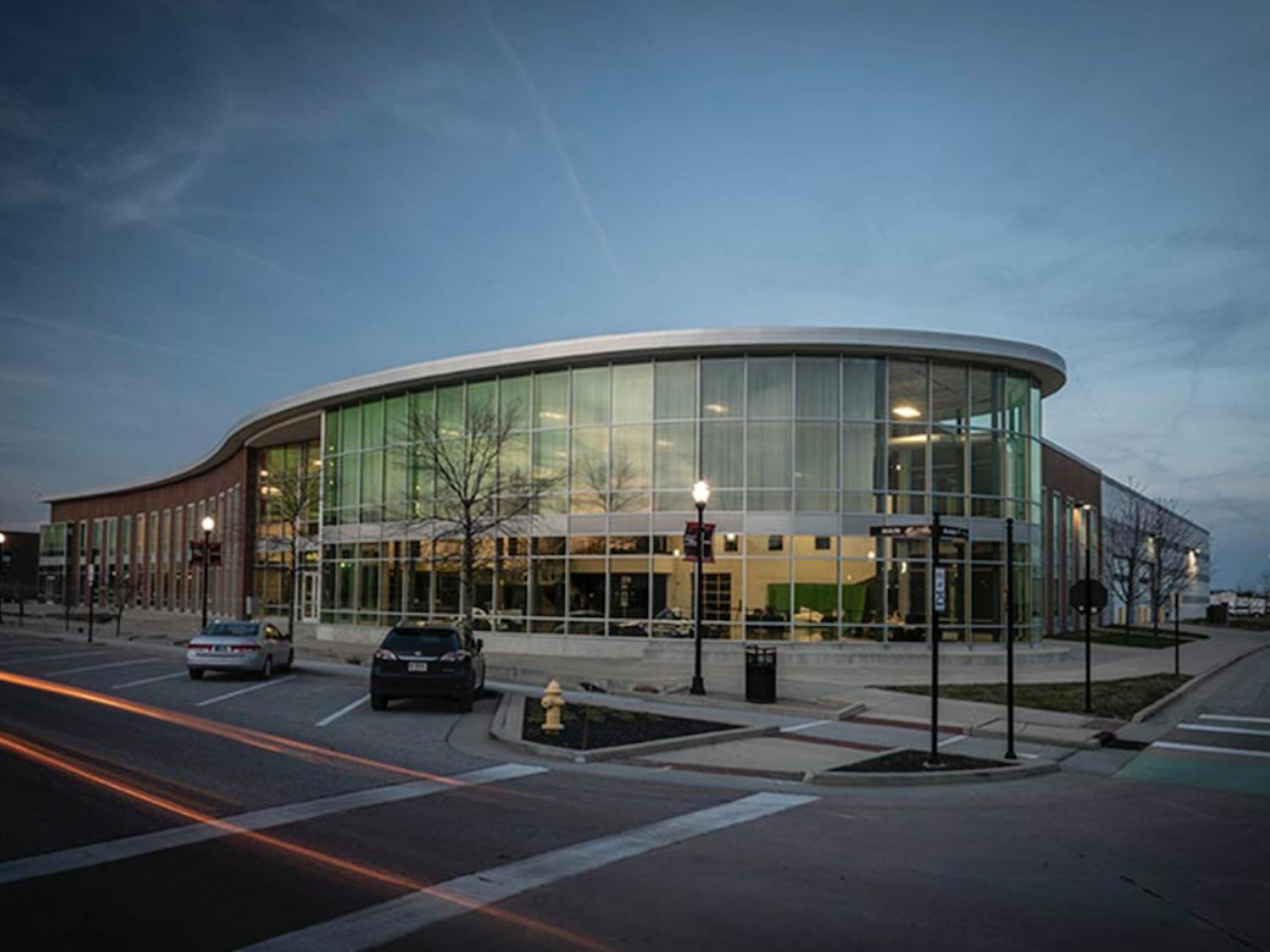Music has had the power to bring joy into my life in the darkest moments. Nine years ago, after my mom passed away from a brain tumor, it was the Christian hymns of my youth that I turned to for hope and comfort in that time of loss and loneliness. I still return to the words of “It is Well,” a beautiful piece written by Horatio Spafford, in turbulent times today.
Often music makes us happy. Sometimes music makes us sad. Sometimes it even makes us fall in love. Chances are that unless you are Sigmund Freud (who famously hated music), music has shaped your perceptions, influenced your memories, and maybe even changed your life.
As a neuroscience major with a background in clarinet, piano, guitar and voice, I was extremely honored to be given the opportunity to interview neuroscientist and professional vocalist Colleen McGonigle this week.
Jacob: “So, Ms. McGonigle, can you give me a bit of your professional background?”

Colleen: “I’ve been performing and taking music lessons since I was in second grade. I’ve studied piano, violin, French horn and voice. I double-majored in voice performance and neuroscience in my undergraduate program at Bucknell University and went on to receive a master’s degree in vocal performance from Peabody Conservatory. My performing career has taken me across the country and to Europe multiple times. And I taught music lessons full-time before entering the addiction neuroscience doctorate program here at IUPUI.”
I myself had always found the connection between music and neuroscience interesting, but I never thought I would find so many neuroscientists at IUPUI with backgrounds in music. I had met neuroscientist Dr. Ardalan Vossoughi, M.D. just a month prior. Our meeting went in the strangest fashion at the University Tower piano. First, he played a beautiful piece by Johann Sebastian Bach, and then he told me about his background in neuroscience. What an interesting conversation that made!
For as long as University Tower had been a part of IUPUI, meetings just like that had happened among strangers: students and faculty, at the beautiful, ebony grand piano that once graced its halls. In that ballroom I saw firsthand others experiencing the “peace like a river” that comes with making music with others and for others.

That is why it came as such a shock to so many when Residence Life removed the piano. After calling the manager of the music technology department, I discovered that they had not only moved the piano to the IT Building but also hidden it from public access. This is a tragedy because music has a place in all of our lives, not just those majoring in music.
Jacob: “So, then, what led you to connect neuroscience and music?”
Colleen: “My path with music and neuroscience is winding. I’ve always been interested in both science and music, which intersect directly in the field of music cognition, which focuses on how the brain processes music. I selected an undergraduate education that would allow me to study both music and neuroscience as well as do research in a music cognition lab.
My personal experience with this research showed me that combining my two interests in one field decreased my enjoyment of both areas. So, I stepped away from music cognition work and refocused on the two fields separately; I got a lot more serious about my performances and joined a behavioral neuroscience lab that did alcohol addiction research. I did take several years away from science to complete my Master of Music degree, but my plan was always to return to neuroscience after that program. The majority of musicians have full-time careers that are not related to music and perform on the side. I’m lucky to have a passion for neuroscience and therefore have the opportunity to pair a career in neuroscience with one in music.”
Nathan Johnson, a freshman at IUPUI, is another example of someone who has been able to pair a love of music with other career goals. Once a frequent visitor of the piano in University Tower, he juggles the responsibilities of being an interior design technology major with being a worship leader at his church.
Jacob: “Nathan, could you tell me a little bit about your music background?”
Nathan: “Well, I’ve played piano as a hobby for eight and a half years, guitar for five, and sang for nine.”
Jacob: “I know you frequented the University Tower Piano. Can you tell me how it added to your college experience, and how it benefited you being able to express yourself creatively in public?”
Nathan: “It definitely calmed me down in times of stress. It also helped me to make friends, and I know others were able to come in and enjoy themselves listening to music”
Jacob: “How would you feel if IUPUI invested in a new, public piano?”
Nathan: “ I would LOVE it... I would enjoy college so much more, and it would definitely bring a light to campus in a new and different way.”
It is clear then, that Nathan felt the calming impact of music in his life. Stress, which is a major impediment to brain function, returns us back to the connection between neuroscience and music.
Jacob: “So, scientifically speaking, what is the connection between neuroscience and music?”
Colleen: “Music is freely available in our culture and is something with which almost everyone engages regularly and is therefore appealing to study from sociological and perceptual perspectives. It relies on complex neural mechanisms and has successfully been used in therapeutic settings for a range of psychological conditions. A large branch of neuroscience is focused on how the brain receives sensory information and processes that information in a meaningful way. Music is a complex stimulus that’s important to our culture, so understanding how the brain processes and derives meaning from music is a really interesting question.”
Jacob: “In a more general sense, then, could you explain the benefits of music in education?”
Colleen: “We hear talk about people being “right-brained” or “left-brained,” referring to people who are dominantly creative or analytical, respectively, in their thinking. Education dominantly focuses on the “left-brained” skills, but music and art courses allow for people who may be more “right-brained” to thrive and find meaning in their education. Creativity is also valued across all industries now, as we emphasize entrepreneurial skills for everyone. Beyond exercising creativity, music also develops skills in teamwork and collaboration since performance relies on cooperation among many individuals in an orchestra, choir, or band.”
The University Tower piano did just that: it brought together a large and diverse group of students united by a simple fascination with melody. For this reason, IUPUI ought to invest in a new public piano to further its educational mission and make our beautiful campus's culture more inclusive. Such cooperation would not only benefit the culture of campus, but it would also benefit the individual minds of those using it.
Jacob: “What is it about music that has such a benefit on the brain?”
Colleen: “Music activates many regions of the brain at once, and in some ways the rhythmic nature of music can provide the brain with something like a massage. It can activate the motor networks that control our movements, which is one of the reasons that music makes people want to dance. Singing also relies upon the speech centers in our brain, which is how it can be used in speech therapy to assist people who have lost the ability to speak from a stroke or similar assault. Maybe more importantly, music activates the regions of our brain responsible for emotions and for memory and can have strong, often therapeutic effects on these brain regions. The activation of so many brain regions at once is somewhat unique to music and listening to or performing music can act as a ‘total brain workout.’”
Jacob: “So what psychological or social benefits could there be in having a public space for people to express themselves creatively, in particular through music? Do you think a public piano would benefit the students at IUPUI?”
Colleen: “Music is beneficial both for people listening to music and for those performing the music. On both sides of the coin, music can alleviate stress and depression, can exercise that creative side of the mind, and can bring people together. Especially in a collegiate setting, access to music is essential. Students are stressed and relying heavily each day on the analytical parts of their mind. Engaging with music can alleviate these pressures and provide a much-needed break to rejuvenate and refocus before returning to their studies. Instruments, especially large ones such as pianos, are challenging to access if they are not publicly available. Without accessible instruments, students cannot reap the benefits of performing music, which in turn limits the access of others to listen to live music.”
Looking through the perspective of a neuroscientist, it is easy to appreciate the connection between music and our brains. It seems evident then that a new, public piano would lead to directly applicable benefits to the health of the student body and the cultural soul of campus.
On a practical level, there would be several great public spots for this piano. Speaking with a resident assistant last week I discovered that the piano was housed near the north entrance of Hine Hall three years ago, which seems like the perfect place to put a new one.
Other possible locations include the Dean’s Room on the second floor of the University Tower, the basement of University Library outside of the Honors College or in the Campus Center near the dance floor. At any of these locations, students from all walks of life could take a break from studying just to listen or play and rest their minds. This would be a well-used investment that would pay many dividends in years to come.
I implore the faculty of IUPUI to support and quickly implement such a plan. This public space for individuals of all walks of life to meet and express themselves creatively would follow IUPUI’s commitment to diversity, equity and inclusion. These benefits far outweigh the costs of a new piano, because music is a vital part of the physical, mental and cultural health of our campus.
If you are interested in getting involved in research with a lab on campus, studying the field of music cognition, or sharing a story of how music has impacted your life, you are welcome to leave a comment on this article or contact me directly at stewar1@iu.edu.
Music, the Brain, the Piano Problem: An Interview with Colleen McGonigle

Heads up! This article was imported from a previous version of The Campus Citizen. If you notice any issues, please let us know.
Colleen McGonigle, Neuroscience graduate student and professional vocalist. Photo by Brittani McFadden.
Photo of the piano that used to be in University Tower by Jacob Stewart.




